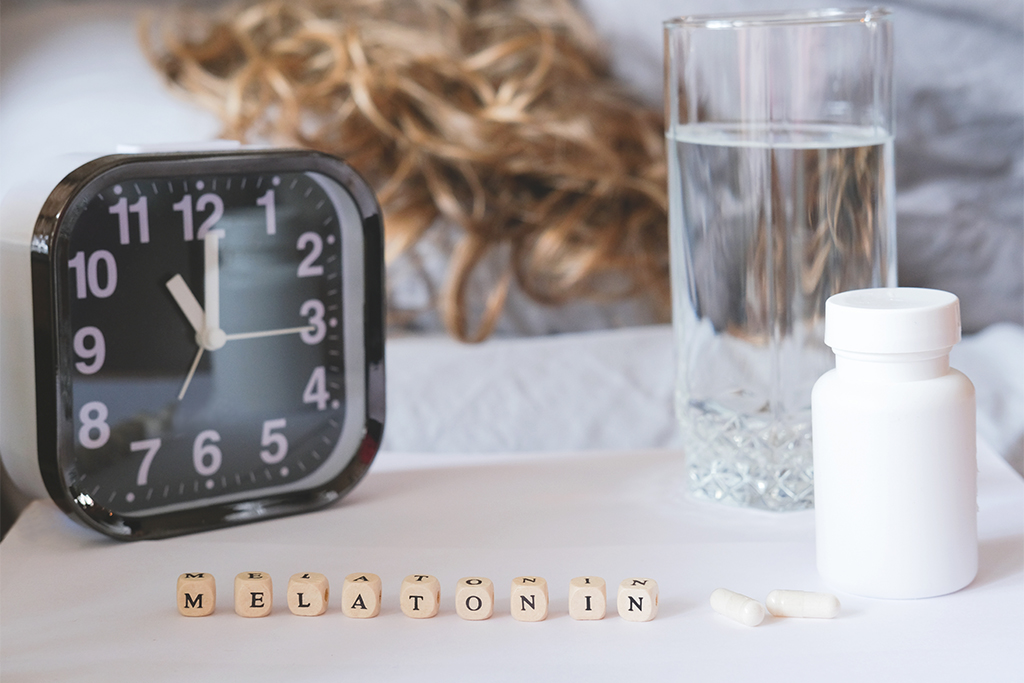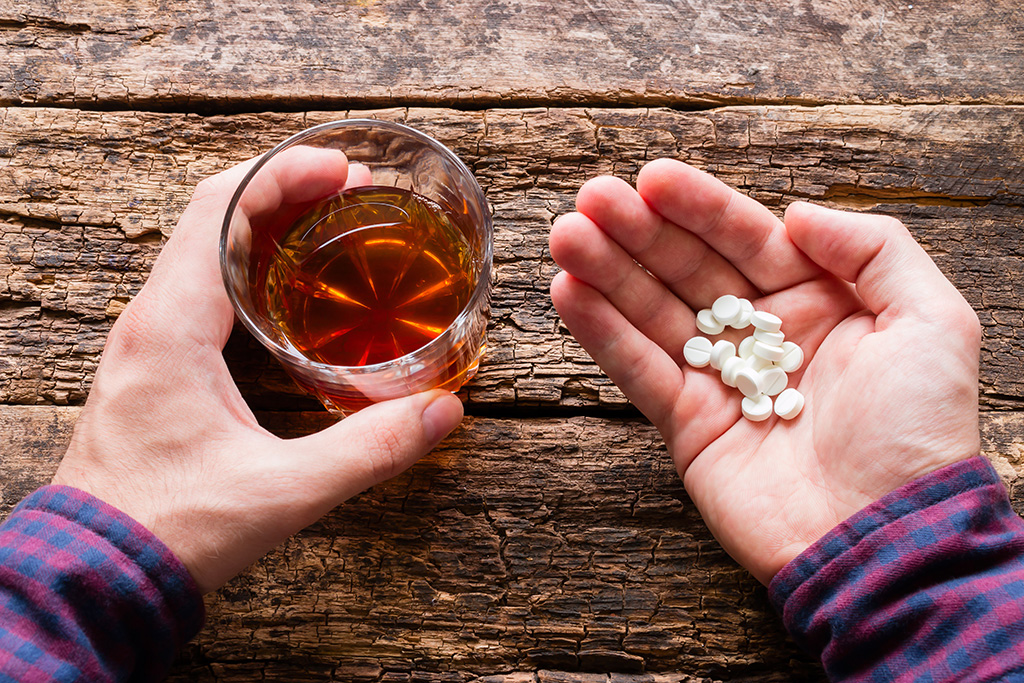Reviewed By:
Amidst the lingering COVID-19 pandemic, more Americans are coping with antidepressants and sleeping pills.
Psychiatrists wrote nearly 1 million more prescriptions for habit-forming anti-anxiety medications like Klonopin in March compared to the previous year, according to health-research firm IQVIA. They also wrote 2 million more prescriptions for antidepressants. Pharmacy benefit manager Express Scripts told the Wall Street Journal it filled nearly 15% more sleep prescriptions. This says nothing of those who have turned to over-the-counter solutions.
The Census Bureau has shown that as many as one-third of Americans are suffering from clinical anxiety or depression.
Although the numbers may not be surprising, doctors fear that patients may unwittingly become dependent on addictive medications meant for short-term use. Although most psychiatrists are careful to prescribe antidepressants and sleeping pills within the approved guidelines for safe use, patients can become hooked in a shockingly short time — in some cases, as little as two weeks.
The Risks of Long-Term Use
Dr. Andrew Mendonsa, a lead clinical psychologist at Sprout, likens the withdrawal from antidepressants to recreational substance abuse. “Stopping anxiety medication often has to be treated like alcohol — through a slow and steady detox and taper down.”
Long-term dependence is also a concern. With so many people trying antidepressants for the first time, some may turn to medications like Xanax rather than facing the root of their anxieties.
“We often look to quick fixes to address our emotional pain and stress,” said Dr. Mendonsa. “Sadly, there are not too many healthy quick fixes. Instead, medications often just kick the can down the road for us to deal with later.”
Have questions about addiction?
Call us at 855-430-9426 to speak with a recovery specialist.
Here are some of the most commonly prescribed drugs for anxiety and insomnia, their risk level for physical dependence, and what to know before taking them:
Benzodiazepines
Addiction Risk: High
- Benzodiazepines are a class of psychoactive drugs that doctors use to treat anxiety disorders. This class includes some of the most commonly prescribed antidepressants in the US, including Klonopin, Lorazepam, Xanax and Valium. “Benzos,” as they’re often called, are safe when taken as prescribed, but these drugs are highly addictive and prone to abuse. Doctors should only prescribe these drugs for short-term anxiety relief. If you’re prescribed a benzodiazepine, talk to your doctor about the risks of addiction before refilling a prescription, even if the drug has been prescribed “as needed.”
Selective Serotonin Reuptake Inhibitors (SSRIs)
Addiction Risk: Low
- Selective serotonin reuptake inhibitors are a popular class of antidepressants that work by altering serotonin levels in the brain, effectively making the “feel good” chemical more available in the brain. Common SSRIs include Celexa, Cymbalta, Prozac and Zoloft. Although this drug class is generally considered safe, with a lower chance of addiction than other antidepressants. However, you may still experience withdrawal symptoms. And even if you don’t become addicted, there are still risks to taking an antidepressant long-term.
- According to analysis by the research journal Psychotherapy and Psychosomatics, people who used antidepressants long-term were 14% more likely to suffer from heart attack or stroke. To safely stop taking an SSRI after short-term use, talk to your doctor about phasing out the medication to mitigate withdrawal symptoms.
Sedative Hypnotics
Addiction Risk: High
- Sedative hypnotics include a wide range of drugs that address sleep disorders. Ambien and Valium are perhaps the best-known drugs of this class, but it also includes other widely advertised drugs, such as Lunesta and Intermezzo. Not all sedative hypnotics work in the same way, but most work by enhancing the brain’s gamma-Aminobutyric acid (GABA) neurotransmitter, which calms overactive neurons and slows down brain activity.
- Although effective, many sedative hypnotic drugs are highly addictive. Most are only approved for short-term use. Drugs like Ambien and Valium, which can lead to a “high” in large doses, are also susceptible to misuse.
- If you suffer from both anxiety and sleeplessness, it is also important to note that sedative hypnotics may indeed cause depression. Other side effects include drowsiness and confusion.
Tetracyclic Antidepressants
Addiction Risk: Low
- Some of the oldest antidepressants available, tetracyclic antidepressants are generally safe and not considered addictive. However, they do have some unpleasant side effects, such as nausea, sweating and flu-like symptoms. Because of this, doctors often look to alternatives first. Examples of tricyclic antidepressants include Trazadol, Norpramin, Tofranil and Pamelor. If your doctor prescribes one of these drugs, ask about all possible side-effects. Be sure to mention any co-occurring physical or mental health conditions.
Anxiety Medication and Substance Abuse
If you have suffered from a substance use disorder, antidepressants can be helpful. According to the National Institute on Drug Abuse, 43% of people who struggle with addiction also have a co-occurring mental health disorder. Antidepressants can help manage those underlying issues to prevent relapse.
However, it’s important for those with a history of substance abuse to be open with their doctors about their history, particularly if they still struggle. Not only are some antidepressants addictive themselves, but taking prescription drugs with alcohol or illicit substances can be dangerous. In some cases, the combination is fatal. Speaking honestly helps to avoid unintended consequences.
Relieving Anxiety without Medication
Although antidepressants are an important part of managing anxiety, most doctors intend them only for short-term use. Over-prescription can lead to unhealthy long-term habits, doctors say.
“Instead of taking care of what is making you anxious, you’re much more likely to reach for the Xanax,” Beth Salcedo, former president of the Anxiety and Depression Association of America, told the Wall Street Journal. “It can very quickly become a habit.”
Turning straight to antidepressants and sleeping pills can also rob you of the chance to learn valuable coping mechanisms that can apply to other stressors, Dr. Mendonsa adds. “Learning coping skills that can be used in many situations over and over again tends to account for a more successful and sustained recovery,” he said.
If you struggle with ongoing anxiety, there are ways to manage your symptoms without antidepressants and sleeping pills.
Cognitive behavioral therapy is one of the most successful methods for treating depression and anxiety. This approach helps to disrupt negative thought patterns and put anxieties into perspective. Dr. Mendonsa uses cognitive behavioral therapy to help clients who struggle with substance abuse.
He also recommends finding natural ways to boost the brain’s serotonin levels. As he shared in a previous article, the brain needs serotonin to cope with stress, but this mood-boosting neurotransmitter doesn’t need to come from medication. Going for a run, calling an old friend, or even playing video games are all natural ways to boost serotonin.
By taking a breath and acknowledging a stressful situation, you can manage anxiety in more natural ways.
Have questions about addiction?Chat with one of our recovery specialists now.


